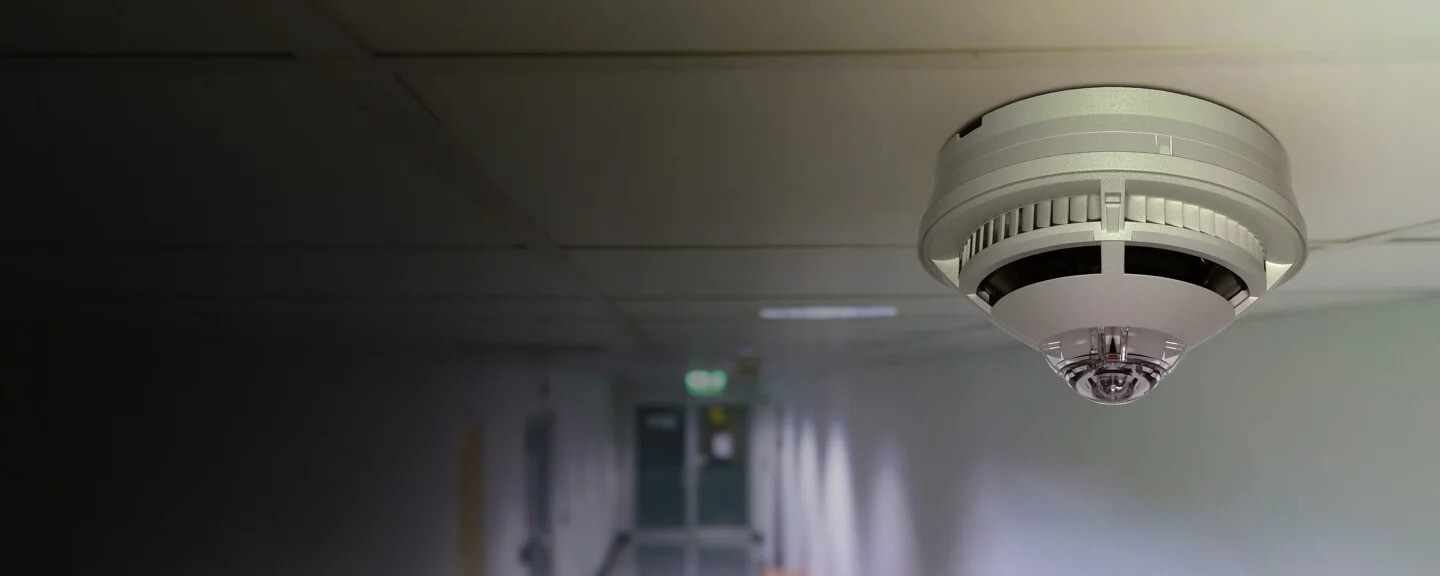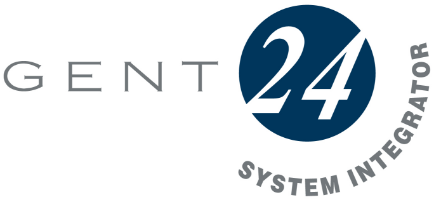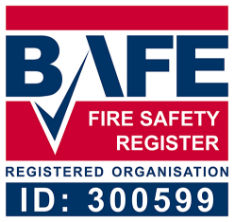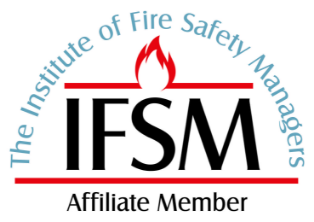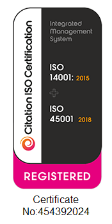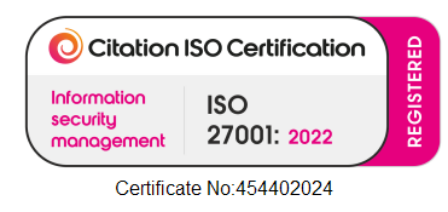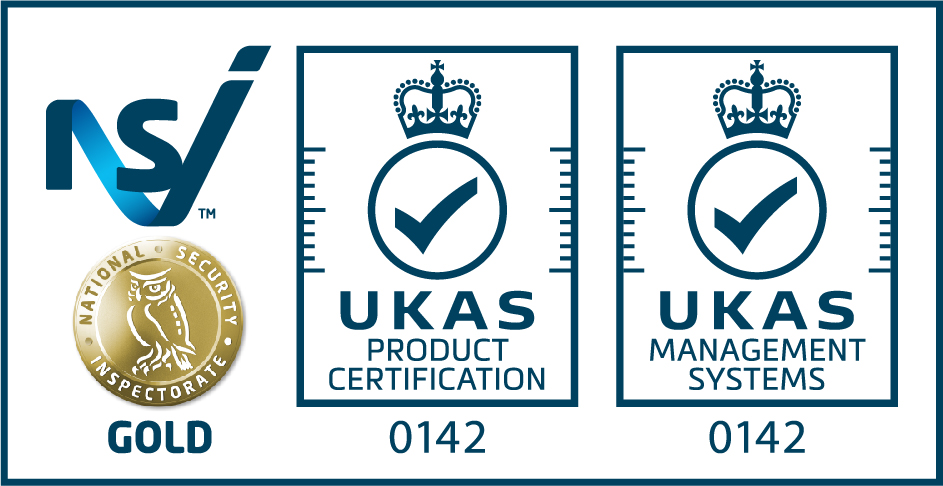In today’s fast-paced commercial environments, the risk of fire can be devastatingly high. For business owners and facilities managers responsible for commercial buildings, office spaces, and industrial facilities, fire suppression systems are crucial solutions designed to extinguish, control, or in some cases, entirely prevent fires from spreading or occurring.
When it comes to protecting your staff, premises, and valuable assets, standard fire detection isn’t always enough. With approximately 12,000 fires each year caused by faulty wiring and electrical mishaps, and an average financial loss per incident estimated at £657,074, investing in comprehensive fire suppression technology isn’t just good practice – it’s essential for business continuity.
At Logic Fire and Security, we understand that navigating fire safety regulations while managing your daily operations can be overwhelming. That’s why we’ve created this comprehensive guide to fire suppression systems and gas suppression fire systems for commercial properties.
What Is a Fire Suppression System?
A fire suppression system is designed to extinguish, control, or prevent the spread of fire with agents chosen suitable for the specific risk. These systems generally integrate with very early smoke detection apparatus to identify warning signals and are linked to a fire alarm system, alerting those on the premises in the event of a fire.
Unlike standard fire extinguishers that require manual operation, fire suppression systems are mechanical safety systems installed to protect high risk or high value assets, designed to detect fires early and automatically release special agents to control or extinguish flames. They work independently, protecting your staff, equipment, and building without human intervention.
You’ll typically find these advanced systems in high-risk commercial environments like kitchens, data centres, or server rooms, where protecting valuable equipment is paramount.
What Are the Three Methods of Fire Suppression?
Fire suppression systems utilise various methods to combat fires effectively. Here are the three primary methods used in modern systems:
1. Gas-Based Suppression
Gas suppression systems use a gaseous agent to rapidly extinguish fire across at-risk areas with minimal damage or residual waste. These ‘clean agents’ are non-conductive gases that leave no residue upon evaporation.
There are two main types of gas-based suppression:
- Chemical Agents: Stored as a compressed liquid in a cylinder, these agents rapidly change to a gas when discharged.
- Inert Agents: Naturally occurring gases like CO2, stored in cylinders in gas form and discharged as a gas.
These systems work by either releasing the inert gas into the air, starving the fire of oxygen or heat, or by disrupting the chemical reaction that sustains the fire.
2. Water-Based Suppression
While traditional sprinkler systems use water, modern water-based suppression systems are more sophisticated:
- Water Mist Systems: These systems are triggered when the water within reaches very high pressure and is then forced through the sprinkler head, creating a fine mist that efficiently cools the fire and reduces oxygen levels.
- Sprinkler Systems: These are more complex and comprehensive systems installed throughout buildings to protect the building structure and content from the risk of fire and fire spread.
3. Chemical Agent Suppression
These systems are best for when water would be detrimental. They utilise various types of chemical agents to suppress fires, including dry chemical agents and wet chemical solutions specifically designed for different classes of fire.
For commercial kitchens, wet chemical suppression systems like Ansul R-102 are specifically designed to quickly detect and suppress kitchen fires using advanced extinguishing agents that effectively combat kitchen fires and limit damage.
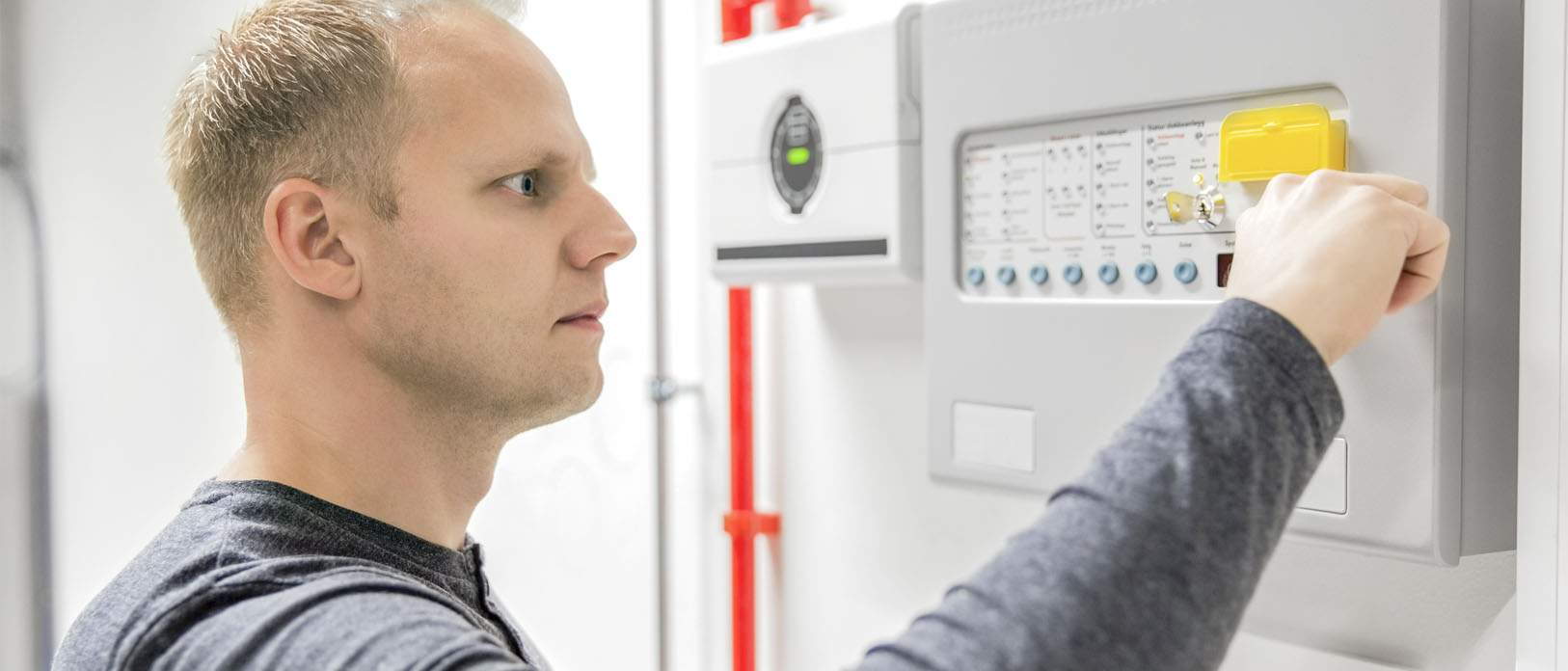
What Is the Difference Between Fire Suppression and Fire Sprinklers?
One of the most common questions we receive from commercial property managers relates to the difference between fire suppression systems and traditional sprinkler systems. Understanding this distinction is crucial for choosing the right protection for your business.
Fire Sprinkler Systems
A fire sprinkler system is an active fire protection method, consisting of a water supply system, providing adequate pressure and flowrate to a water distribution piping system, onto which fire sprinklers are connected.
Sprinkler systems are extremely effective in many scenarios, with research showing that in buildings completely protected by fire sprinkler systems, over 96% of fires were controlled by fire sprinklers alone.
However, there are limitations to consider:
- While sprinklers can extinguish flames, the irreversible water damage can be extremely costly for buildings, especially those with large amounts of tech infrastructure and high-value or perishable goods.
- Since water is a known aggravator for chemical-induced flames, these systems may not be suitable for facilities handling oils, gases or flammable liquids.
Fire Suppression Systems
Fire suppression systems offer several distinct advantages:
- Automatic fire suppression systems are designed to be a safer, more advanced alternative to typical fire extinguishers and sprinkler systems. Not only do these systems prioritise the safety of your occupants, but they also protect your property and its contents with minimal damage. All this is done without human activation or manual extinguishing, giving you more time to focus on clearing the building safely.
- With the right agent, the system will extinguish a fire with minimal damage to the contents inside, preventing the flames from becoming more catastrophic.
- With the right agent, suppression systems can extinguish a fire with minimal damage to the contents inside, which not only reduces the perceived risk but can also be more favourable for insurance providers.
For commercial kitchens specifically, regardless of how a fire starts, it is important to suppress the fire as quickly as possible. Water typically is not an option, as grease fires spread with the inclusion of water, while extinguishers may ruin all of the food and produce inside of the kitchen when unnecessary.
Why Choose a Fire Suppression System for Your Commercial Property?
For business owners and facilities managers, the decision to invest in advanced fire protection isn’t just about compliance—it’s about comprehensive protection of your most valuable assets, including:
- Staff Safety: Extinguishing systems act to control fires automatically, allowing you and your staff to stay safe and get away from the fire, rather than putting your health at risk by attempting to control the fire manually.
- Business Continuity: Fast-acting systems suppress the fire quickly, getting it under control before major damage is caused to buildings and equipment. This minimises financial losses from having to replace damaged goods and reduces downtime following a fire incident.
- Asset Protection: With the right agent, the system will extinguish a fire with minimal damage to the contents inside, protecting valuable technology, equipment, and inventory.
- 24/7 Protection: You’ll have the comfort of knowing your premises are protected even when you’re not around. Fire can break out at any time, and having an automatic system means the fire won’t have time to take hold if it occurs out of office hours.
- Insurance Benefits: All these protective measures can often lead to lower insurance premiums, with insurers knowing your business is less likely to suffer major fire damage.
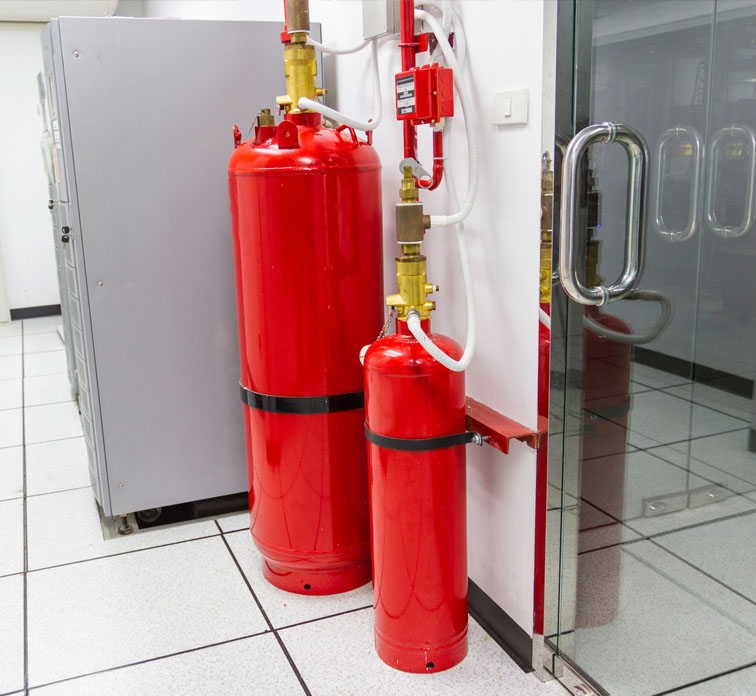
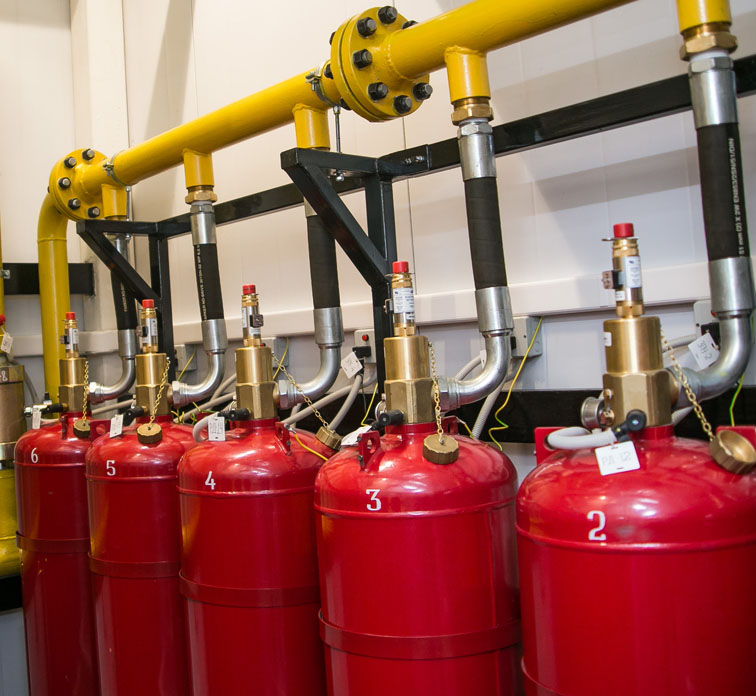
Can I Install My Own Fire Suppression System?
While it might be tempting to consider self-installation to reduce costs, fire suppression systems require professional design, installation, and maintenance to ensure they function properly when needed.
Here’s why professional installation is essential:
- Regulatory Compliance: Fire suppression systems are governed by the codes under the National Fire Protection Association (NFPA). This organization writes codes, regulations, and recommendations on the proper installation and maintenance of these fire suppression systems.
- Certification Requirements: In the UK, systems like the Ansul R-102 are certified to UL300 and LPCB LPS 1223. They are only installed by approved contractors, providing you assurance that the system is tested and well regulated.
- Legal Obligations: If you operate a commercial kitchen in the UK, you’re legally required to take steps to minimise fire risk. While the law doesn’t specifically name fire suppression systems, it does require suitable fire fighting equipment to deal with risks identified in your fire safety assessment.
- Insurance Implications: For most busy commercial kitchens, especially those using fryers or wok ranges, a built-in suppression system is the safest and most reliable solution. Not having one could not only put people at risk but also invalidate your insurance or result in enforcement action.
- Ongoing Maintenance Requirements: To ensure system functionality and compliance with British and European Standards, biannual maintenance visits are required.
Professional installation also ensures that the system is correctly tailored to your specific environment and risk profile, providing optimal protection for your business.
How Do Fire Suppression Systems Work?
Understanding how these systems function can help you appreciate their value in protecting your business:
With any fire suppression system, it all starts with an alarm sounding. Once the connected smoke/heat sensors are triggered, the alarm is activated and the agent is released via detection tubes into the detected room, working to extinguish the flames and protect the contents inside.
For kitchen suppression systems like the Ansul R-102:
The system is activated either by heat sensors or manually using a pull station. When triggered, it releases a liquid chemical that quickly reacts with hot oils and grease to form a soapy layer, which cools the area and starves the fire of oxygen. This method is highly effective against Class F fires, which involve cooking oils and fats.
The system automatically shuts down gas and electricity to cooking equipment when activated, further limiting the fire’s spread. Once discharged, it is important that trained personnel clean the area and reset the system before cooking operations resume.
False Alarm Prevention
Modern systems incorporate sophisticated mechanisms to prevent false alarms:
Most modern fire suppression systems are equipped with a series of detector activations known as ‘first and second’ stage alarms. When an initial alarm is triggered by one of the detectors, the ‘first stage’ alarm is activated. A sounder will then alert the relevant on-site team members of the danger, allowing them to clear the building and carry out their exit strategy.
If a second detector is activated, confirming a potential fire, the system will switch into its ‘second stage’. This will trigger the release countdown, giving ample time to leave the building safely before the agent is emitted into the target area.
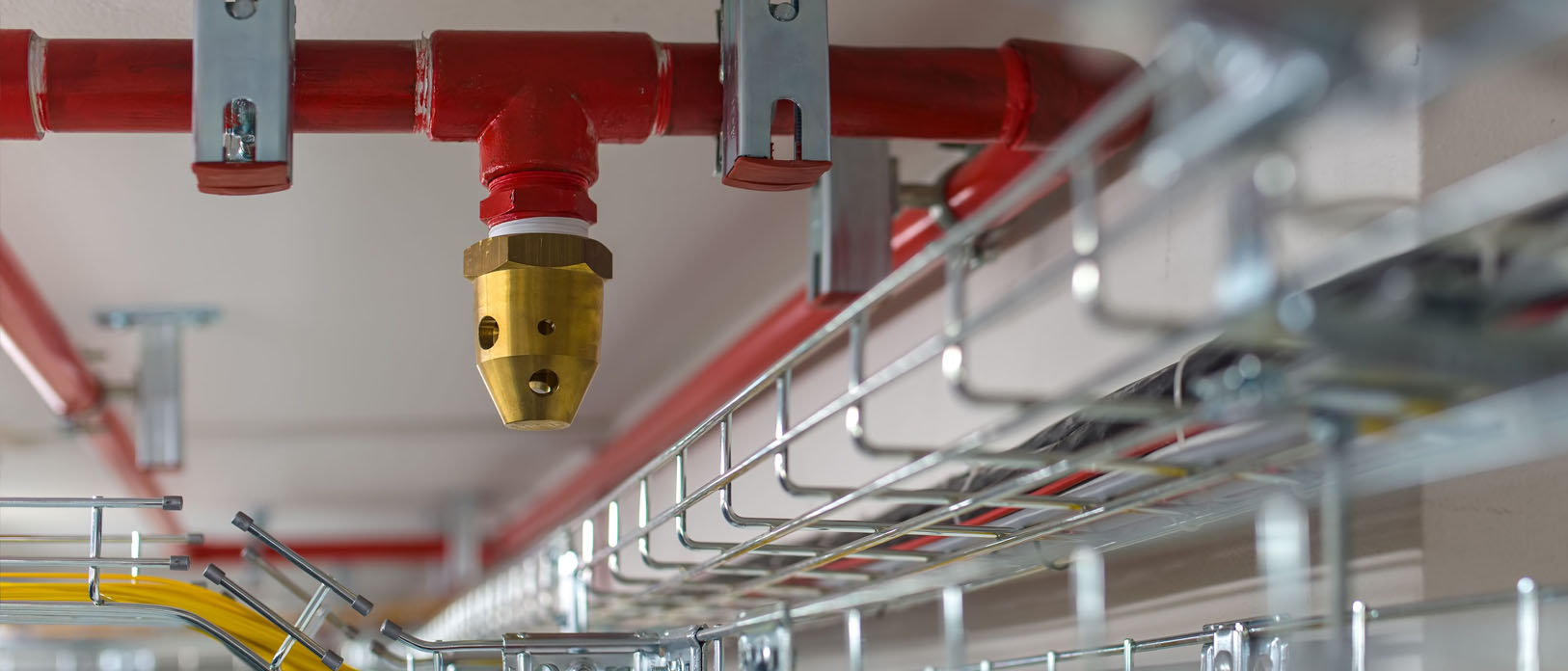
Choosing the Right Fire Suppression System for Your Business
Ultimately, there’s no one-size-fits-all approach to choosing the right fire suppression system for your business. It needs to be based on your requirements, building size, assets and industry.
Key factors to consider include:
- Type of Business: Any kitchen using deep fryers, grills, hobs, or solid fuel appliances should have a fire suppression system in place. This includes restaurants, hotels, schools, care homes, hospitals, and food production facilities.
- Asset Protection Needs: For server rooms, data centres, or areas with sensitive electronic equipment, gas suppression systems that use a gaseous agent to rapidly extinguish fire with minimal damage or residual waste are often preferred.
- Regulatory Requirements: Different industries have specific regulatory requirements for fire protection. Working with experienced fire safety professionals ensures your system meets all applicable standards.
- Budget and Maintenance Considerations: While initial installation costs are important, also consider ongoing maintenance requirements and potential insurance savings.
By working with experienced fire safety specialists like Logic Fire and Security, you can be confident that the system recommended for your business provides optimal protection while meeting all regulatory requirements.
The Logic Fire and Security Approach
At Logic Fire and Security, we understand that business owners and facilities managers are under constant pressure to keep their properties safe while managing many other responsibilities. Our comprehensive approach to fire suppression includes:
- Thorough Risk Assessment: We evaluate your specific environment, operations, and potential fire risks to recommend the most appropriate suppression solution.
- Custom System Design: We don’t offer a one-size-fits-all approach. Every kitchen and commercial space is assessed individually to provide a setup that suits your layout, equipment, and processes.
- Professional Installation: Our certified technicians ensure that your system is installed correctly and functions as designed.
- Regular Maintenance: To ensure system functionality and compliance with British and European Standards, we provide the required biannual maintenance visits.
- 24/7 Support: Should any issues arise, our team is available to provide rapid response and support.
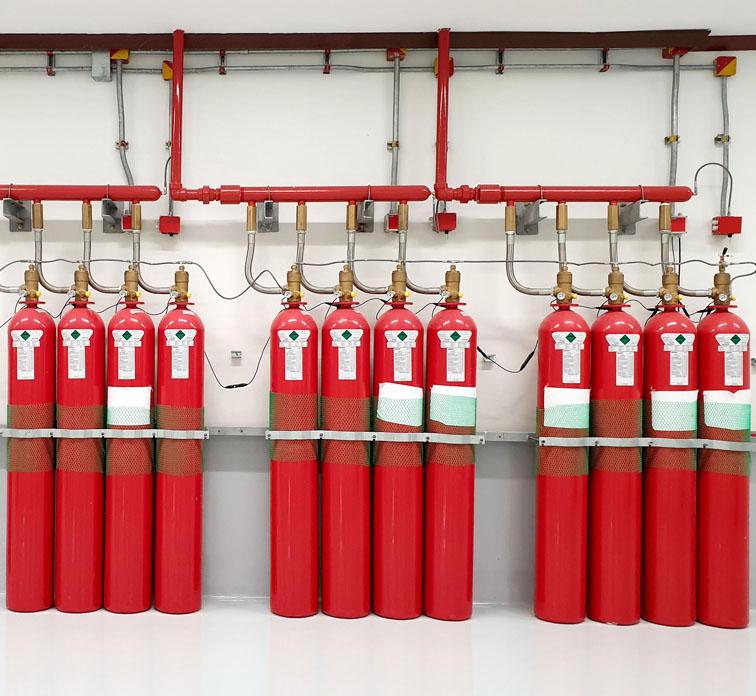
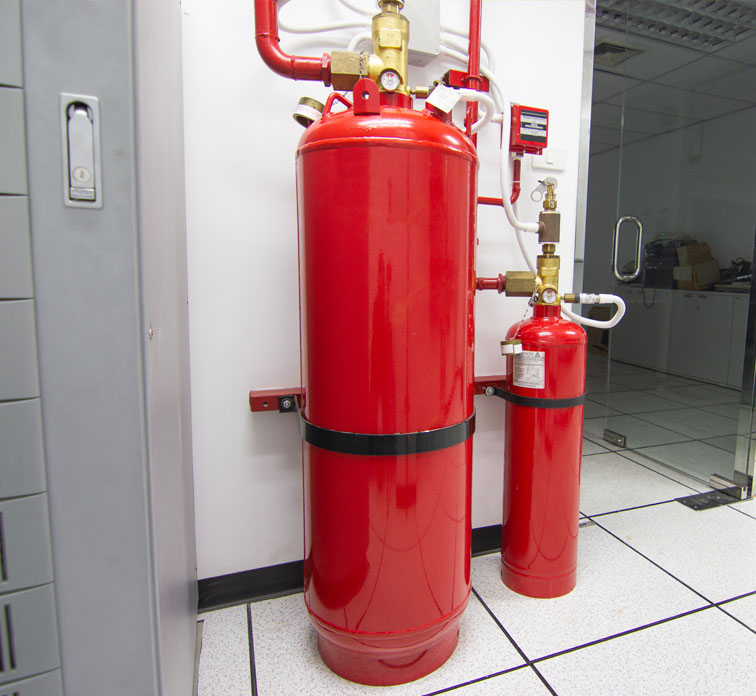
Invest in Peace of Mind
For commercial property owners and facilities managers across the UK, the weight of responsibility for keeping people safe can be immense. Fire suppression systems offer not just physical protection for your building and assets, but also peace of mind knowing you’ve taken every reasonable step to mitigate fire risks.
By working with Logic Fire and Security, you gain a partner who understands both the technical aspects of fire protection and the regulatory landscape that governs it. We provide clarity and straightforward advice, eliminating the confusion and overwhelm that can come with navigating complex fire safety regulations.
Don’t wait until after an incident to evaluate your fire protection needs. Contact our expert team today to discuss how we can help protect what matters most to your business.
Contact Logic Today
Ready to enhance your commercial property’s fire protection? Contact Logic Fire and Security today for a consultation with our fire suppression specialists. Call us on 0800 8445 999, email sales@logicfireandsecurity.com, or simply fill out the How Can We Be of Service form below. Our team is ready to provide the expert guidance and solutions your business needs.


